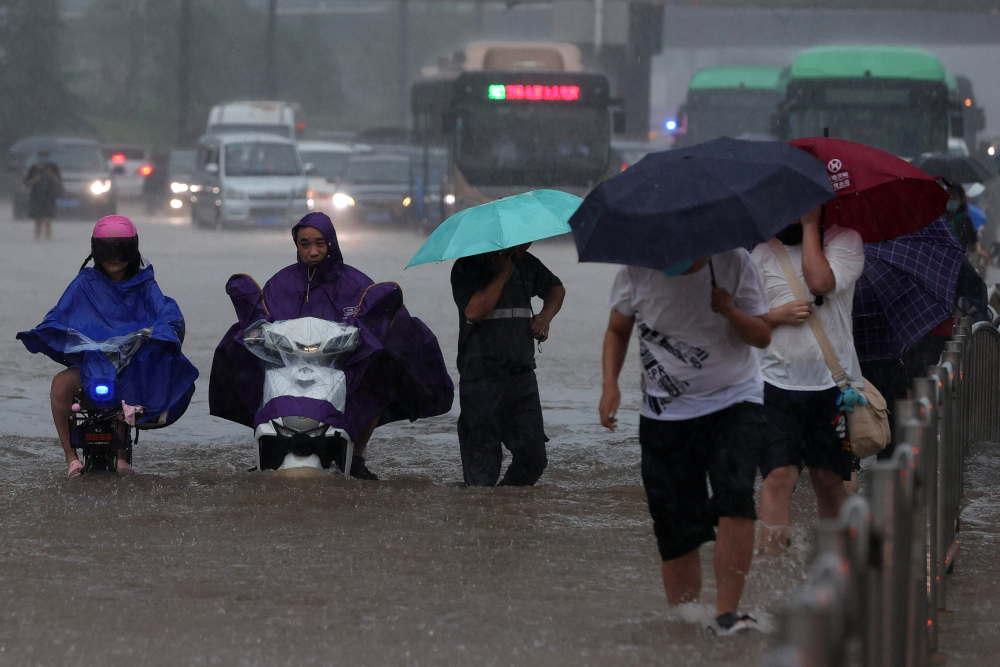
This photo taken on July 20, 2021 shows people wading through flood waters along a street following heavy rains in Zhengzhou in China’s central Henan province.
BEIJING: Twelve people died after torrential rains flooded the subway in the central Chinese city of Zhengzhou, authorities said today, as shocking images of passengers struggling against neck-high water inside a train carriage emerged on social media.
The city of more than 10 million people in Henan province “has experienced a series of rare and heavy rainstorms, causing water to accumulate in Zhengzhou metro”, city officials said in a Weibo post, adding 12 people died and five were injured.
Authorities have issued the highest warning level for Henan province as record floods hammer the province.
Seasonal floods are common in China, but scientists say climate change is bringing increasingly extreme weather patterns.
Images poured across Chinese social media showing dramatic rescues of pedestrians in Zhengzhou from torrents gushing through the streets.
The Chinese army warned that a stricken dam in the centre of the country “could collapse at any time” after being severely damaged in torrential storms that killed at least three people and brought the region to a standstill.
Yesterday evening, the regional unit of the People’s Liberation Army warned that the relentless downpour had caused a 20-metre breach in the Yihetan dam in Luoyang — a city of around seven million people — with the risk that it “may collapse at any time”.
The PLA’s Central Theatre Command said it had sent soldiers to carry out an emergency response including blasting and flood diversion.
“On July 20, a 20-metre breach occurred at the Yihetan dam…. the riverbank was severely damaged and the dam may collapse at any time,” it said in the statement.
Annual floods during China’s rainy season cause chaos and wash away roads, crops and houses.
But the threat has worsened over the decades, due in part to widespread construction of dams and levees that have cut connections between the river and adjacent lakes and disrupted floodplains that had helped absorb the summer surge.
According to the authorities, the rainfall was the heaviest since record-keeping began 60 years ago, with the city seeing the equivalent of a year’s average rainfall in just three days.


